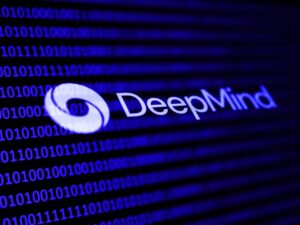OpenAI Labels DeepSeek as ‘State-Controlled’ and Advocates for Bans on ‘PRC-Made’ Models

OpenAI’s Concerns About DeepSeek: A Growing Debate in AI Regulation
Background of the Controversy
OpenAI has recently raised alarms regarding a Chinese artificial intelligence lab known as DeepSeek. In a new policy proposal, OpenAI characterizes DeepSeek as “state-subsidized” and “state-controlled.” The organization is urging the U.S. government to consider prohibiting the use of AI models developed by DeepSeek and similar entities supported by the People’s Republic of China (PRC).
This proposal is part of a submission to the Trump administration’s “AI Action Plan” initiative, aiming to establish guidelines for the ethical use and development of artificial intelligence. OpenAI warns that DeepSeek’s models, particularly its R1 “reasoning” model, may pose risks to security and user privacy, as the company is mandated under Chinese law to comply with local authorities’ requests for user data.
Potential Risks of Using DeepSeek’s Models
OpenAI highlights several potential dangers associated with using AI models produced by DeepSeek:
- Privacy Concerns: There is a risk that user data collected by DeepSeek could be accessed by the Chinese government, endangering individuals’ privacy.
- Security Issues: The request for a ban is partly motivated by fears of intellectual property theft. OpenAI claims that allowing access to these models could expose sensitive data to malevolent actors.
- Compliance with Local Laws: OpenAI argues that companies using DeepSeek’s models might inadvertently violate user privacy rights due to compliance with Chinese regulations.
The Ambiguity Surrounding "Models"
There’s some confusion regarding what OpenAI means by “models.” This could refer to DeepSeek’s API, its open-source models, or both. DeepSeek’s open models, hosted by firms like Microsoft, Perplexity, and Amazon, are said not to include mechanisms that would allow the Chinese government to collect user data. This raises questions about the validity of OpenAI’s concerns regarding these specific models.
Previous Accusations Against DeepSeek
OpenAI has made accusations in the past concerning DeepSeek. Earlier this year, they claimed that DeepSeek was “distilling” knowledge from OpenAI’s models in violation of their terms of service. However, the new allegations that emphasize connections between DeepSeek and the Chinese government signify a more serious escalation in OpenAI’s opposition to the Chinese lab.
The Links Between DeepSeek and the Chinese Government
While the claims about DeepSeek’s ties to the Chinese government are serious, there is no concrete evidence establishing a direct connection. DeepSeek, which emerged from a quantitative hedge fund called High-Flyer, has gained significant attention recently. Notably, the founder of DeepSeek, Liang Wenfeng, met with Chinese President Xi Jinping a few weeks ago. This meeting has spurred discussions regarding the government’s growing interest in the lab’s activities and direction.
Regulatory Implications
OpenAI’s proposal has serious implications for AI regulation and international relations. If the U.S. decides to move forward with such a ban, it could lead to increased tensions between the United States and China in the technology sector. The debate touches not only on issues of national security and privacy but also on the broader ethics of AI development and collaboration across borders.
Conclusion
The situation surrounding DeepSeek illustrates the complexities of modern AI development, particularly when national security, ethical considerations, and international competition intersect. As AI continues to shape various aspects of life and business, navigating these challenges will require careful attention from policymakers, researchers, and tech companies alike.




